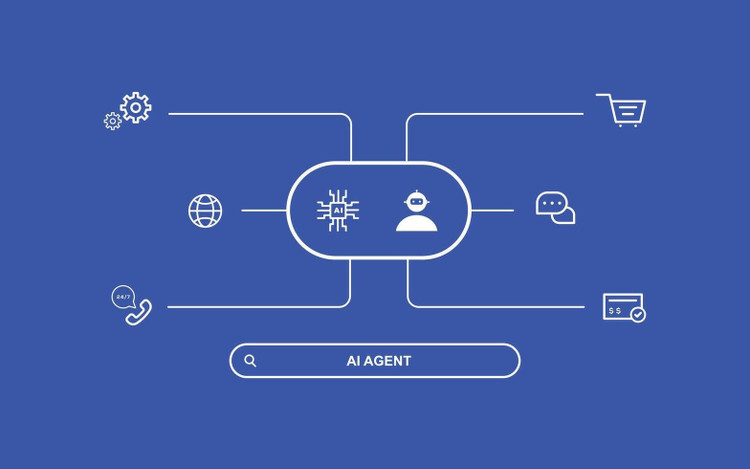The three tech giants Google, Meta, and Amazon have all announced new advances in AI, showing a clear shift from a response model to an action model. Instead of simply responding to users, new AI systems are being designed to proactively observe, plan, and complete a series of tasks like a true digital companion.

Google led the way with the Gemini update, an AI toolkit deeply integrated into the Android operating system and Chrome browser. Gemini can now not only answer questions, but also perform actions on behalf of users such as summarizing documents, scheduling meetings, writing emails, or searching for information on complex requests. In parallel, Google introduced Deep Search, an AI-enhanced search engine that can understand deep semantics and provide complete answers instead of just showing links as before.

Meta, while not yet releasing a specific agent product, is demonstrating its long-term strategy by expanding its AI infrastructure. With its open-source Llama 3 model family, Meta is laying the groundwork for agents that can learn over time, maintain context across multiple interactions, and adapt to users over time. This approach is not only for platforms like Facebook or WhatsApp, but also paves the way for an open AI ecosystem where developers can build their own agents.
Meanwhile, Amazon focuses on the enterprise sector with AgentCore – an AI agent creation platform that runs directly on the AWS cloud service. AgentCore allows companies to integrate internal data, build digital assistants customized for each process, from customer care to technical operations. Amazon's strength is the tight connection between AI and infrastructure systems – allowing agents to access, process and act on real data effectively.
What all three giants have in common is a move towards AI that can operate autonomously – a level that goes beyond chatbots. Digital agents (AI agents) can memorize, reason, analyze complex data and plan actions on their own. This is a step forward that can be likened to a “responding brain” to an “acting arm”, turning AI into a partner instead of just a tool.
The rise of digital agents is no accident. It reflects the growing needs of our digital society: to process massive amounts of information, automate repetitive processes, and accelerate decision making. Large language models (LLMs), combined with APIs, real-time databases, and artificial memories, are creating a solid technical foundation for AIs that can understand the world and interact like humans.
With Google, Meta, and Amazon all joining in, the digital agent race is no longer a potential, but is already present on phones, browsers, and cloud services. In the near future, instead of just telling AI to do small tasks, users will be able to assign entire tasks and let AI take care of the rest.
Source: https://khoahocdoisong.vn/google-meta-amazon-dong-loat-tung-cong-cu-ai-moi-post1555395.html


































































































Comment (0)